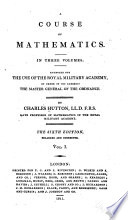 | Charles Hutton - Mathematics - 1811 - 406 pages
...2a*-2a— 4, CASE III. To Reduce Fractions to a Common Denominator. MULTIPLY every numerator, separately, by all the denominators except its own, for the new numerators ; and all the s denominators together, for the common denominator. When the denominators have a common divisor,... | |
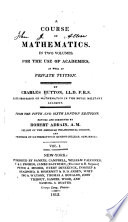 | Charles Hutton - Mathematics - 1812 - 620 pages
...— 4 CASE III. To Reduce fractions to a Common Denominator. MULTIPLY every numerator, separately, by all the •denominators except its own, for the new numerators ; and all the denominators together, for the common denominator. When the denominators have a common divisor,... | |
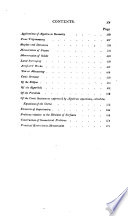 | Charles Hutton - Mathematics - 1816 - 610 pages
...Reduce Fractions of Different Denominators, to Equivalent fractions having a Common Denominator. * MULTIPLY each numerator by all the denominators except...its own, for the new numerators : and multiply all thedenominators together foi a common denominator. Note, It is evident that in this and several other... | |
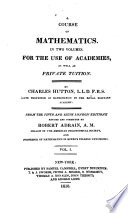 | Charles Hutton - Arithmetic - 1818 - 646 pages
...Reduce Fractiont of Different Denominators, to Equivalent Fractions having a Common Denominator. * MULTIPLY each numerator by all the denominators except...the denominators together for a common denominator. ./Vote, It is evident that in this and several other operations, when any- of the proposed quantities... | |
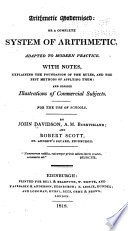 | John Davidson, Robert Scott (writing master) - Arithmetic - 1818 - 190 pages
...least terms. mx CASE V. To reduce fractions to a common denominator. RULE. Multiply each numerator ly all the denominators except its own, for the new numerators ; and multiply all the denominatort together for a common denominator. Note. Compound fractions must be reduced to simple... | |
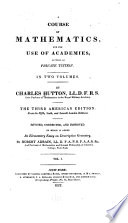 | Charles Hutton - Mathematics - 1822 - 616 pages
...quantity, CASE III. To Reduce Fraction* to a Common Denominator. MCLTIPLY every numerator, separately, by all the denominators except its own, for the new numerators ; and all the denominators together, for the common denominator. When the denominators have a common divisor,... | |
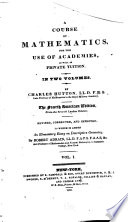 | Charles Hutton - Mathematics - 1825 - 608 pages
...Reduce Fractions of Diflerf.nl Denominators, to Equivalent Fractions having a Common Denominator. * MULTIPLY each numerator by all the denominators except its own, for the new numerator* : and multiply all the denominators together for a common denominator. J\"otf, It is evident... | |
 | William Ruger - Arithmetic - 1832 - 282 pages
...questions: How do you reduce fractions to a common denominator? A. By multiplying each numerator into all the denominators except its own, for the new numerators,...the denominators together for a common denominator. Why does not that operation alter the value of the fractions? A. Because it is multiplying each numerator... | |
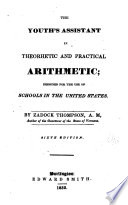 | Zadock Thompson - Arithmetic - 1832 - 186 pages
...common denominator, RULE. — Multiply all the denominators together for the common denominator, and each numerator by all the denominators except its own for the new numerators. EXAMPLES. 3. Reduce f and £ to a common denominator. 2X4=8 new nu. for § 3X3=9 « « £ 3X4=12 com.... | |
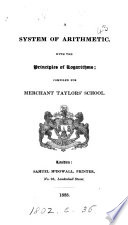 | Richard Frederick Clarke (the elder.) - 1833 - 158 pages
...numerators. 2X1X4= 8J RULE. Multiply each numerator into all the denominators, except its own, for new numerators ; and multiply all the denominators together for a common denominator. Should any of the proposed quantities be whole or mixed numbers, or compound fractions, reduce them... | |
| |